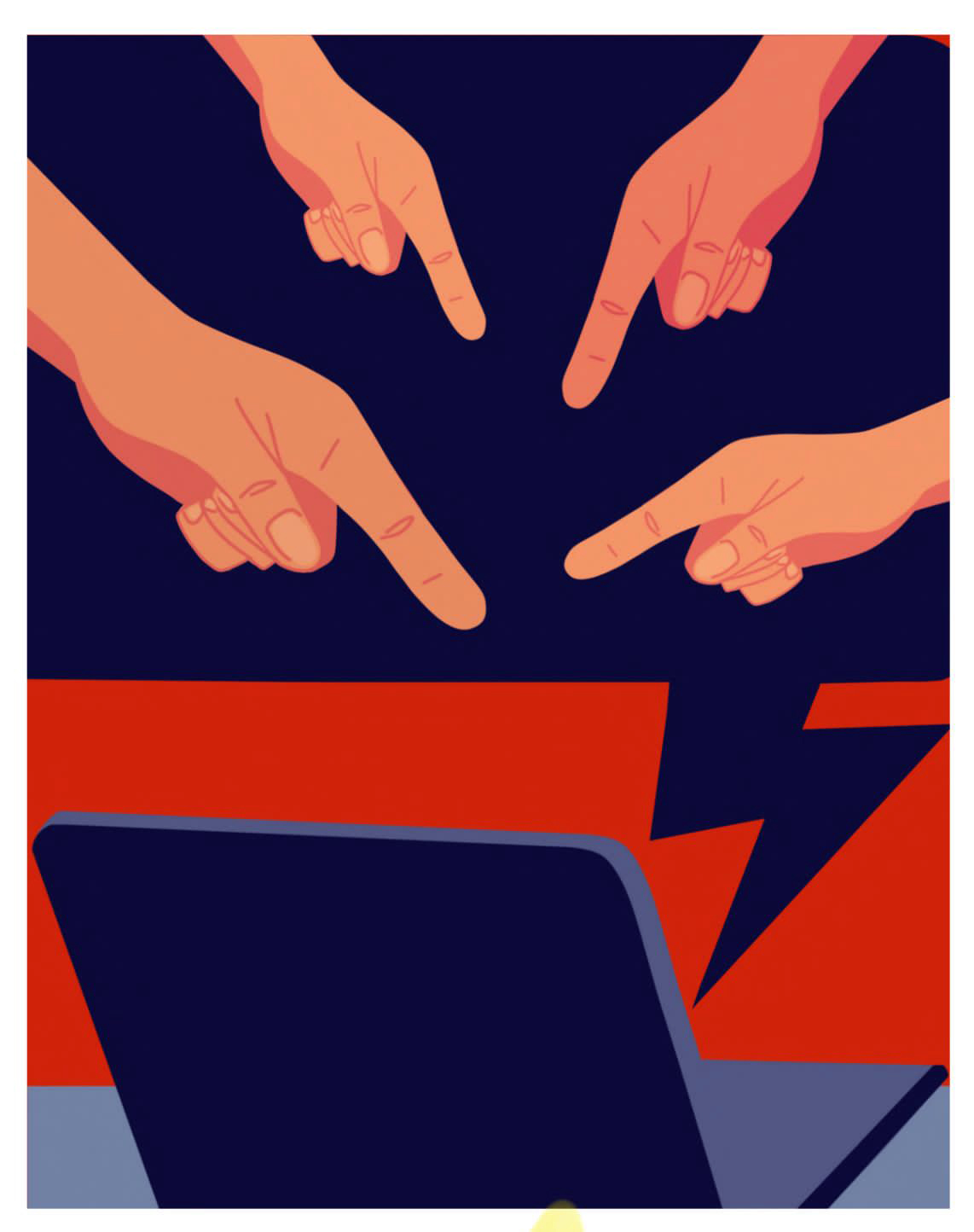The Internet has become one undeniable and undetachable invisible to human beings, from highly busy cities to remote geographies, and it has taught us what is ‘global village’ in reality. Just like in one physical place where people can chat, share thoughts, engage in conversations, debates, assist, or even confront each other, the internet or virtual world also provides the maximum opportunity to do the same type of communication and connectivity.

To be more specific, in a modern-day society, workplaces without any online access are unimaginable, schools that are backward in internet connectivity are less capable of providing updated knowledge, and households are embracing smart televisions, appliances that are internet dependent, let alone people’s smartphones.
The new normal is that everyone is connected and should be on human communication networking platforms, including but not limited to social media, developing the absolute realization of need for connectedness. The list of advantages of the virtual world includes advanced economies, education, science, management of resources, exchange of data, and many more. We could not imagine a couple of years ago what artificial intelligence-based web applications are capable of doing today!

Well, as a reader, I would surely burst in curiocity if there is one opposite side of the coin? With numerous positive changes, the list of downfalls has cybercrimes, online harassment/or gender-based violence, privacy breach, fake news, misinformation, radicalization, scam, hate speech, and the list goes on. So are we skeptical that the internet of good is less than the dark side? Before we could get some quick judgments around this debate, I could look back at how virtual access provided opportunity to millions during COVID 19 lock down to continue education, keeping people safe by sharing awareness, and transforming communication trends in today’s commerce, science, or even in the field of politics.
Let us take a look at some cross-regional and global facts around online gender-based violence. A UNICEF report in 2019 found that 9 in 10 girls in the Asia-Pacific region have experienced some form of online harassment or cyberbullying. This includes unwanted sexual comments, cyberstalking, and non-consensual sharing of personal images. Major social media platforms report millions of incidents of content removal related to harassment and abuse each year. For instance, Facebook reported removing 5.4 billion fake accounts and 6.4 million pieces of hate speech content in the first quarter of 2021. To the surprise of many who think some of these social media are only used by professionals might have to agree with one study that found 55% of tweets using derogatory terms about women were sent by women themselves, highlighting the internalization of harmful attitudes. The mental health hazard has increased for online GBV, as this can have dreadful consequences on the mental well-being of the victims, leading to anxiety, depression, and other psychological issues.
Weighing up these facts, it is of utmost importance to recognize the negative aspects of the internet and take steps to mitigate their impact. This may include practicing good online hygiene, being critical of online information, and advocating for policies that protect online privacy and security. But how? The answer is good internet governance.
Governance in general and in a digital world defines distinct natures of a metaphorical sense where things are regulated, behaviors are identified and labeled, and importantly, they are connected to the greater vision of keeping an organization, system, or society in order to function for good. Good governance can play a vital role in preventing and addressing gender-based violence (GBV) in the online space. Here are some ways in which effective Internet governance can contribute to this important issue.
● Governments can enact and enforce laws and regulations that specifically address online GBV. These laws can make certain online behaviors, such as cyberbullying, harassment, and non-consensual distribution of intimate images, illegal. Clear legal frameworks can deter potential perpetrators and provide victims with avenues for seeking justice. Also, internet platforms and service providers should have robust reporting mechanisms that allow users to report instances of online GBV. These platforms should take reports seriously and respond promptly to remove offensive content or suspend abusive accounts. Also, collaboration between governments, internet companies, civil society organizations, and international bodies is essential. Effective internet governance should involve all relevant stakeholders to develop comprehensive strategies for addressing online GBV. It is also essential to ensure transparency in how internet platforms handle reports of online GBV and hold them accountable for their actions or lack thereof in addressing such cases.
● Regulatory bodies can work with civil society organizations to create awareness campaigns and educational programs aimed at educating users about online GBV, its consequences, and how to protect themselves and seek help if needed. Collecting data on the prevalence and nature of online GBV is also crucial for understanding the scope of the problem and developing effective strategies to combat it. Internet governance bodies can support research efforts and data collection initiatives. Again, internet governance should prioritize strong data protection regulations that prevent the unauthorized sharing of personal information, which can be used for harassment and stalking.
● While we are reading this article, thousands of girls and women are risking their privacy by clicking a phishing link somewhere around the world. Prevention of such threats requires advanced technological solutions along with awareness programs. The development of technology solutions, such as AI and machine learning algorithms, to identify and flag potentially harmful content. These technologies can also assist in the rapid detection and removal of harmful content. GBV is a global issue, and international cooperation is essential. Internet governance bodies can facilitate cooperation between countries to combat cross-border cases of online GBV. Also, commitments made by states at global and regional spaces, such as- turning GBV down to zero on the 25th anniversary of ICPD in 2019. Moreover, the allocation of resources and funding to support initiatives aimed at preventing and addressing online GBV is also one key to preventing many violations.

Establishing the connection between internet governance and online gender-based violence, works are few but remarkable, and effort is greater. One such example is UN Women’s Youth Guide to End Online Gender Based Violence, that could be used by grassroots civil society groups, youth-focused and serving organizations, and even the government to improve understanding around the topic and how best such solutions fit within the existing jurisprudence of internet applications.
In summary, effective internet governance can contribute significantly to preventing gender-based violence in the online space by establishing clear legal frameworks, fostering collaboration among stakeholders, promoting digital literacy, and protecting user privacy. Combating online GBV requires a multi-faceted approach that involves government regulation, industry responsibility, and community engagement. We must not ignore, without gender equality (SDG goal 5), every other achievement will be threatened.
Publication details
Article Published on The News Hour
Date: Sep 22, 2023
Images courtesy: The News Hour
Link to the Article: https://newshour.media/2023/09/22/can-good-internet-governance-stop-online-gender-based-violence/

